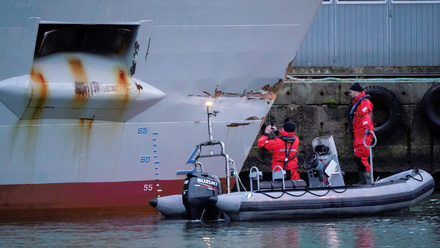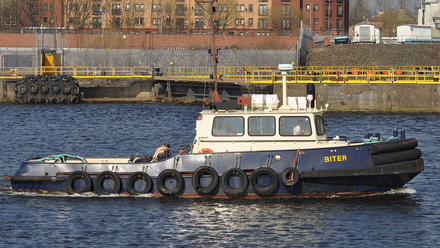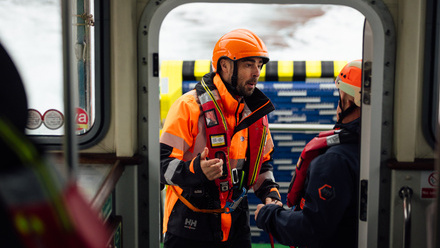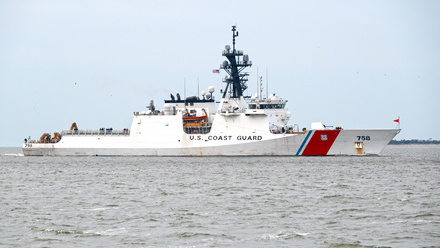Sea robberies: engineers on the front line
Armed robbery against ships in Southeast Asia, and in particular the Straits of Malacca and Singapore (SOMS), continue to be an issue.
The attacks in the Red Sea and Gulf of Aden, and the re-emergence of piracy in the Arabian Sea, are rightly taking the major focus of international attention, yet similar incidents in SOMS have not abated. Even less understood is the disproportionate impact these robberies have on the engineering personnel of merchant vessels that navigate this busy sea lane.
On 31 January 2024, a Singaporean bulk carrier was transiting through the Singapore Strait, having departed Cape Town, South Africa 23 days earlier on its way to Qinzhou, China. The vessel is one of over 100,000 that transit the straits each year, making SOMS one of the busiest and most strategically important shipping lanes in the world. Just before 2am local time, six armed perpetrators entered the engine room, tying up three crewmembers before departing with stolen spare parts and a mobile phone.
This incident, while shocking, is unfortunately not uncommon. Many organisations monitor armed robbery against ships in the straits, along with other regional maritime security issues. In the 12 months to 29 February 2024, the Regional Cooperation Agreement on Combating Piracy and Armed Robbery against Ships in Asia (ReCAAP) recorded 56 incidents of robbery at sea in SOMS, of which 22 were noted to involve the theft of engine spares.
Of those incidents, two involved the assault of a crewmember, with one crewmember being taken hostage. In 11 of the thefts, the perpetrators were observed carrying weapons.
Engineering staff particularly at risk
The statistics show that engine spares are being stolen in over one third of the reported incidents and while there is conjecture about the motivation of the perpetrators, a recent arrest provides the clearest indication. On 31 October 2023, Indonesian authorities arrested five suspects following a ship robbery.
They reported the suspects were operating in SOMS since 2000, working in groups of four people using rented speed boats. Using a phone application to target foreign flagged ships travelling at 12 knots or less, they would board and once onboard, target valuable engine spare parts, which are brought to shore before being sent to buyers using a courier service.
With this focus on the theft of spares due to their immediate monetary value, it makes sense that engineering staff can stumble upon the criminals as the parts are stored in and around engineering spaces. This results in the small but significant occurrence of assault or hostage taking onboard vessels where spares were stolen. Thankfully in most incidents, perpetrators avoid crew wherever possible and flee when spotted, making serious injury rare.
What can be done to protect crews from attacks?
The countries bordering SOMS have established mechanisms for coordinated patrolling of the straits under the Malacca Straits Patrol framework. These patrols do have an impact; in addition to the arrests in Indonesia, Malaysia arrested two gangs targeting scrap metal barges in SOMS in July 2023.
But there is still a requirement on those in the shipping industry to do their part, and fortunately the large number of organisations monitoring incidents in the region mean there is also a large amount of guidance to advise ship operators and crew. ReCAAP provides a range of information and advice, including ship protection measures to control access to bridge, accommodation, and machinery spaces.
This guide should be read by all those involved in operating vessels in Southeast Asia, and in particular slower vessels with low freeboard that make attractive targets to those criminals operating in SOMS.
LTCDR Douglas completed his engineering training in New Zealand and in the UK has served in various roles ashore and at sea, including as Decommissioning Engineer of HMNZS ENDEAVOUR. Having taken a break to work in the petrochemical industry, Mark now serves as New Zealand’s Assistant Defence Adviser to Singapore.
Tell us what you think about this article by joining the discussion on IMarEST Connect.
Image: cargo ships entering one of the busiest ports in the world, Singapore; credit: Shutterstock.






